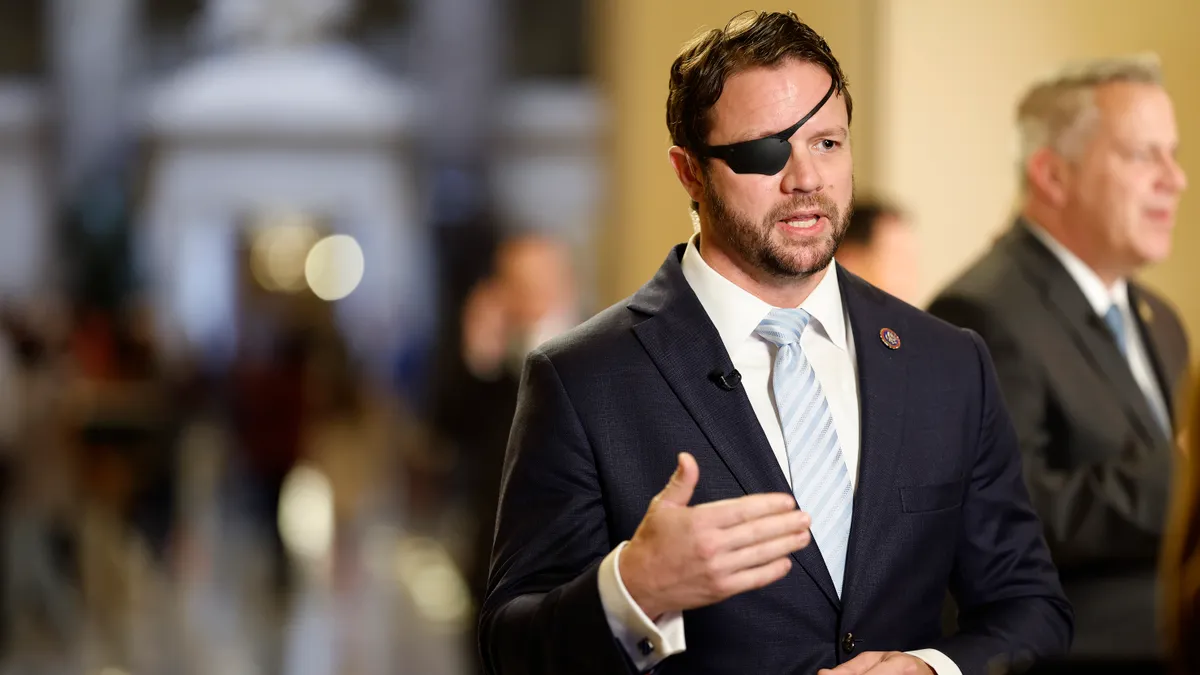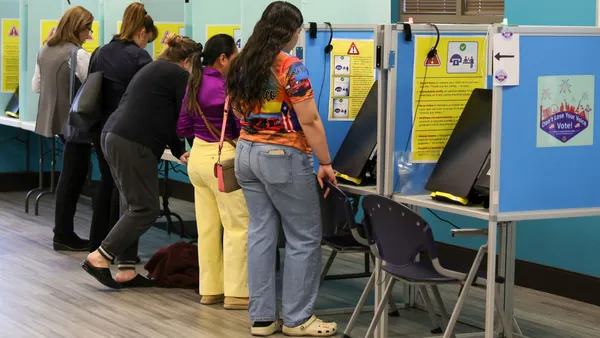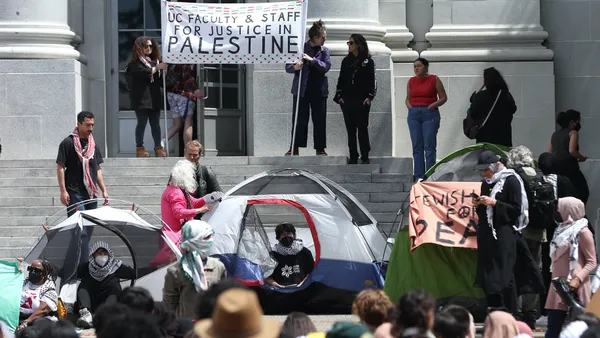AURORA, Colorado — College business officers will be talking to their general counsels about a long list of issues as colleges continue grappling with the fallout of the coronavirus, U.S. Supreme Court decisions and an unsettled athletics landscape, panelists said during a session at the National Association of College and University Business Officers' annual meeting this week.
“The partnership between finance and business officers and the legal teams on our campuses is absolutely critical,” said Ona Alston Dosunmu, president and CEO of the National Association of College and University Attorneys.
Below are some of the legal issues panelists discussed during the session Sunday and the questions they raise for business officers, lawyers and other higher ed administrators.
Remote work
It’s no secret that ideas and expectations about work have changed since employees were sent home to work remotely during the pandemic. Now, many are balking at the idea of going back to the office full time.
Addressing that challenge means working across many different offices on campus, panelists said. Business officers will need to work with general counsels, risk officers, human resources administration, chief information officers, real estate offices and equal opportunity offices.
How can institutions manage remote work for different jobs? How many employees do you need to add to manage a remote workforce? Who gets to decide about granting remote-work requests — a department chair or a dean?
And then there are the questions about where employees are working. If your employees are in a different state, is your institution subject to that state’s jurisdiction, and what does that mean for its liability? Do you have to register to do business in states where employees are located? What are the rules for workers’ compensation or paid leave?
Many of those questions have the same answer: it depends.
“This is one of the most complex areas I think that I’ve encountered in my higher education career,” said Eileen Goldgeier, vice president and general counsel at Brown University. “It spans so many different areas, from your leased space — you might be a tenant and a landlord — to equity issues.”
Abortion
Campuses in states banning abortion may seem to have the most immediate questions to answer. Will they issue Plan B medication, emergency contraception? What happens when a university’s academic medical center, medical school or nursing school is in a state where the law conflicts with accreditation standards for mandatory training?
Will student organizations use fees charged by thier colleges to transport students to other states for abortions? Will colleges be subject to liability for aiding and abetting? What do health insurance and other insurance policies say?
“I want to focus particularly on your defense and indemnification policies,” said Timothy Lynch, vice president and general counsel at the University of Michigan. “Let’s assume you’re in a banned state. If you have students helping other students or faculty members who are committed to abortion rights helping students or lobbying, will your defense and indemnity insurance programs provide them protection? Will you be providing defense counsel, for example, if they are brought up on prosecution?”
The questions are also complex for institutions that have employees working in different states. And colleges in states where abortion is legal will have to think about interstate travel. What kinds of records are colleges creating that could be sought in court, even over state lines?
“These are issues that are very hard, but the stakes are tremendous for faculty members, for providers, for students,” Lynch said.
Athletics
With conference realignment dominoes set to fall after the Big Ten poached the University of Southern California and University of California, Los Angeles, changes keep unfolding in college athletics. But the field was already in turmoil because of new rules allowing athletes to profit off of their names, images and likenesses and a Supreme Court ruling that said the NCAA cannot limit education-related benefits for college athletes.
Even institutions that lose money on athletics will feel pressure to compensate students, Lynch said. Will they only try to pay athletes in revenue-producing sports of football and basketball? Doing so would likely trigger problems under Title IX, the federal law banning discrimination on the basis of sex in educational settings.
As for name, image and likeness, how will colleges protect their trademarks? Will they allow college athletes to use an institution’s branding to make money, and under what circumstances? How do collectives of boosters formed to encourage students to enroll at a particular college fit with NCAA rules prohibiting pay for play?
Pandemic fallout
After colleges sent students home in the spring of 2020, students around the country filed class-action lawsuits against their colleges seeking tuition and fee refunds or payments, alleging breaches of contract. While some have been settled with payments to students and others are still in the courts, colleges have prevailed in getting judges to throw out many of the claims.
Even administrators at colleges prevailing can use the cases as a reminder to look at university documents. What language should be in housing and procurement contracts?
And if future waves of the coronavirus — or another infectious disease — prompt colleges to consider new vaccination requirements, how will they handle religious exemptions?
“All of these things are still in flux,” Lynch said.













